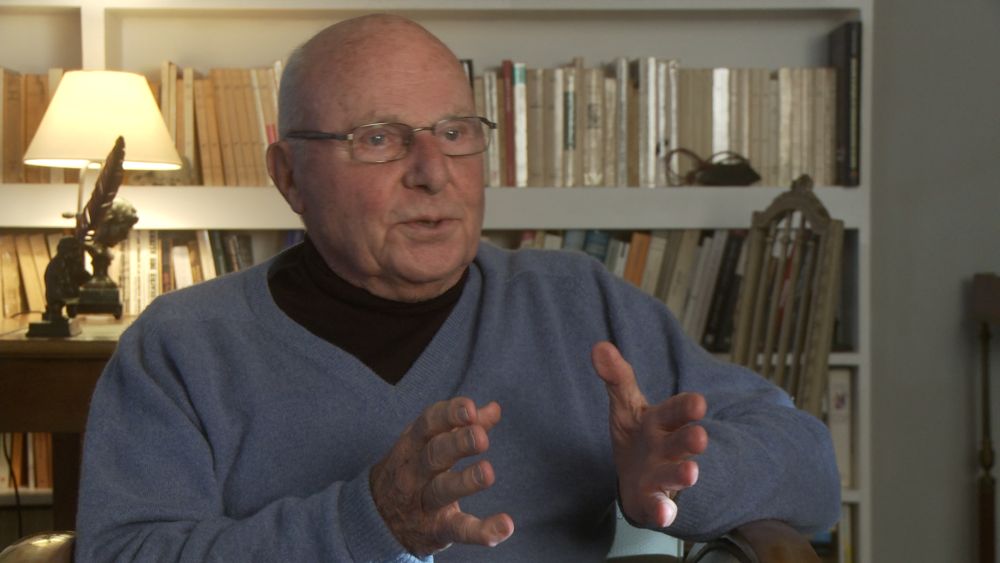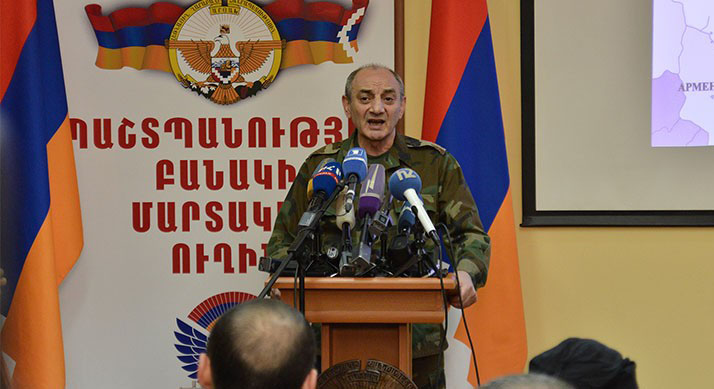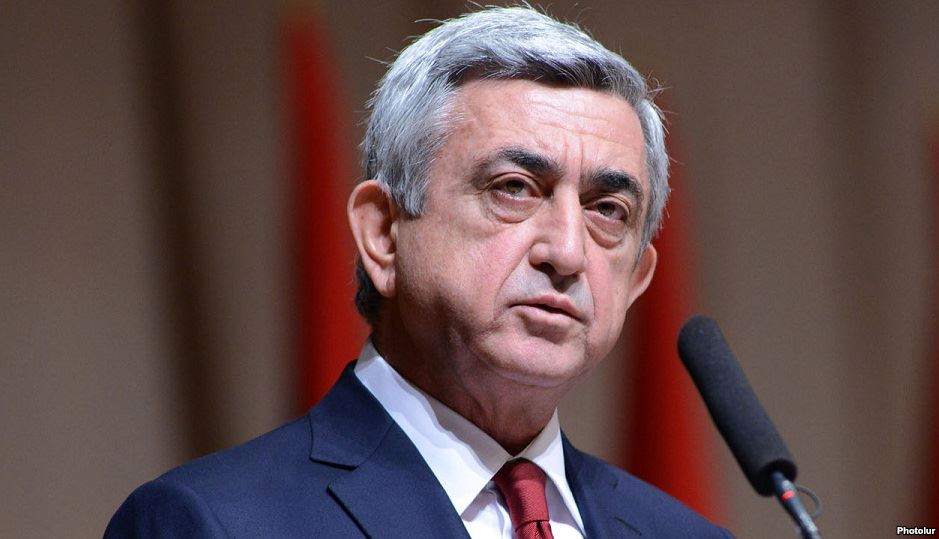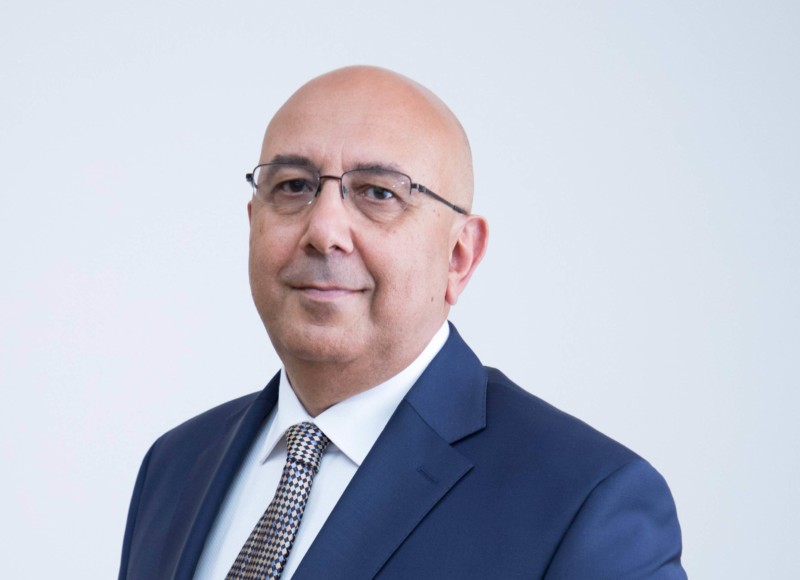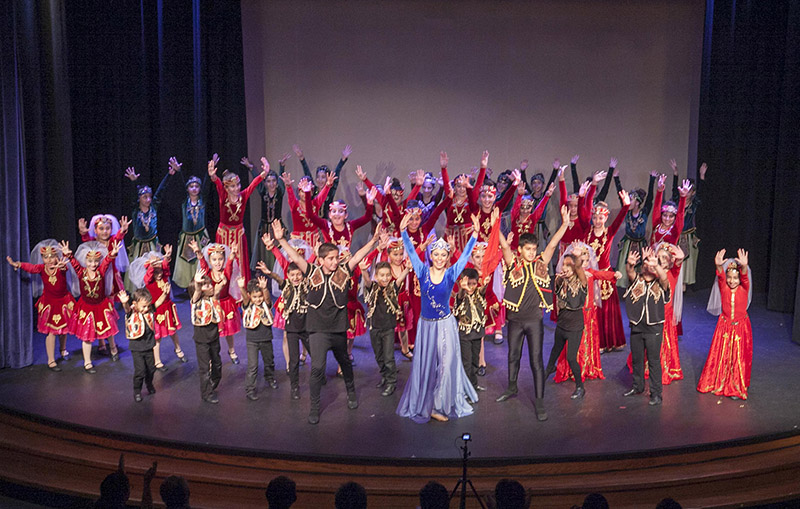By Nazli Temir Beyleryan
(Agos)
Yves Ternon is one of the historians that comes to mind, while talking about “crimes against humanity” and “genocide”. Working especially on Rwanda, Jewish and Armenian genocides, Ternon worked as a physician for years and then devoted himself to historical research. We interviewed with Ternon about his journey from medical practice to historical research and his studies.
Referring to “Neither Victims nor Executioners”, a line from Camus’ “Combat”, Yves Ternon said: “The victims of genocide or crimes against humanity are as aggrived as the ones who died in a war, car crash or natural disaster. Denying this fact is to perpetuate the crime.” (L’innocence Des Victimes, Au Siècle Des Génocides, (Innocence of Victims in the Century of Genocides) Paris, Histoire, 2001, p. 22)
We know that you are a physician. How did you decide to study on history?
I worked as a physician until my forties. Then, in the early ’70s, I began to be interested in history and my first research was on the physicians who took part in the massacres during Nazi rule. I read Nuremberg trials, discovered the prominent physicians in Nazi party and I confirmed that this was genocide. Of course, we knew that there was Holocaust, but I realized that there are a lot of things that I didn’t know after I began to read on history in a detailed way. What happened to Armenians was one of them. As I read, I realized that Armenians experienced the same thing. I mean, in ’70s, I was ignorant about what happened to Armenians. Then, by chance, I became acquainted with Arpik Misakyan, the owner of Haraç newspaper, and he provided an incredible archive. This newspaper had a rich archive on Armenian question and unfortunately, nobody had examined them before me. So, I was the first French or non-Armenian researcher who studied on Armenian question. This is how I began to deal with Armenian genocide. Because I studied on Holocaust before, I was able to make comparisons. And I found myself studying on the crimes against humanity. My most recent book is on Tutsi people in Rwanda. And recently, we carried out studies on re-reading a century old history. The most important one was the colloquium that we held in Paris in spring. We tried to look at the studies on genocide from a different perspective. War and the crimes as part of war… Crimes against humanity is a broad subject; there are a lot things to be studied.
Terminologically, what is the difference between “crime against humanity” and “genocide”?
They are distinct, but complementary terms. And they are often confused. Genocide is a crime against humanity. “Crime against humanity” is defined internationally in 1945. And genocide is defined by Rafel Lemkin in 1948. However, this doesn’t mean that there was no genocide before 1948. For instance, during Nuremberg trials, “genocide” was used several times, though Lemkin hadn’t created that term yet at that time. These terms are legal and defined internationally. In 1998, the definition of both terms are determined clearly. So, now we know that what happened in Yugoslavia or Rwanda was genocide.
Can we make a comparison between Holocaust and Armenian genocide?
Of course we can and in fact, we should. All genocide studies complement each other. Though there are some differences between these two genocides, there are also a lot of similarities. First of all, both of them was based on an ideology. Holocaust was grounded on racist ideology, which is based on antisemitism, or colloquially, on “hate of Jews”. A similar ideology was prevalent among the Young Turks: Turkism, meaning Turkish nationalism and panturkism. At the end, these ideologies went so far that the idea of getting rid of everyone who is not Turk prevailed. I mean, getting rid of Christians, for instance, Armenians.
On the other hand, there is an important difference between two genocides. One of them was a pure racist ideology; this is what happened in Holocaust. Comparing the Armenians in Ottoman Empire and Jews in Germany, Jews hadn’t been constituting a problem; I mean, there wasn’t any religious-ethnic problems or territorial issues. However, Armenians had an autonomy problem in Anatolia and they had always been subjected to discrimination, because they are Christians. In this sense, Armenians constituted a “threat” in Anatolia. They had to eliminate it, but how? By annihilating the Armenians. The frameworks of these two genocides is different, but both of them was based on a ideology and resulted in a genocide.
Social Darwinist theory can be basically explained as the following: more powerful race annihilates the weaker one. In this sense, we can say that the physicians are the ones who know social Darwinist theory best. In Nazi Germany, many physicians took part in the organization of Holocaust. Similarly, we know that there were a lot of physicians in Party of Union and Progress and they participated in the Armenian Genocide. Can we say that this was intentional?
I guess it was not a coincidence. For instance, Dr. Nazim and Bahaettin Sakir had major influences on the Armenian Genocide. Probably, it was not a coincidence that they were physicians, because most of the cadre members of the Unionists were chosen among military physicians. Of course, they may have used their professional knowledge in annihilation of Armenians. On the other hand, this is not a coincidence, because there were a few educated people at that time and most of them were Unionists.
Like in Germany, were there any bureaucrats in the Party of Union and Progress who helped Armenians to saving them from deportation or annihilation?
Of course there were such bureaucrats, but they were few. We should make a distinction between two groups that helped Armenians. First group consisted of bureaucrats; we know that some governors and district governors didn’t want to take part in this process. But, as I said, they were few. Second group consisted of locals. We know that Kurdish families and Yazidis in Anatolia helped Armenians. Armenians had good relations with Kurds in Anatolia and we know that they personally helped Armenians. However, we have to carry out detailed researches on these issues.
You are also interested in the denial of genocide.
Of course I am. This is a century-old denial. In fact, it is more than denial, it is an ignoring policy. Today, Turkey doesn’t only deny the annihilation of Armenians, but also ignores their existence. As Taner Akçam said, Turkish identity is based on the non-existence of Armenians. If Turkey accepts the genocide, it would also accept their existence. This means that Turkish identity would be harmed in part. This is of course really hard. Thus, I think that the denial will go on for years. Turkey also denies the existence of Kurds. Turkish identity doesn’t accept Kurds with their Kurdish identity; they want to see them as Turkish, which is not true. We have to acknowledge that Turkish identity is problematical and it constitutes the foundations of Turkish Republic. Unsettling these foundations is not easy; it requires efforts that will last for years. Thankfully, there are a lot of scientists who work on this issue and some of them in Turkey, which is a good thing.
What can you say about the social transformation in Turkey?
On the one hand, I don’t expect this order to change and on the other hand, the studies that I mentioned are hope-inspiring. However, I can say that Armenian genocide was successful. After Holocaust, Nazis were destroyed. In Rwanda, the regime changed. However, Turkey is still being governed by the Young Turks mentality. Unionist policies remain. I mean, there is change, but it is not enough. In short, there are 3 reasons why I think that the denial of Armenian Genocide will continue. First reason is the impossibility of reconstitution of Turkish identity. Second one is the problem of compensation and the third one is the impossibility of a transformation in Kemalist or Islamist political ideology. Thus, if there is no democracy in Turkey and a radical change, a social transformation is difficult. On the other hand, there are political parties like HDP which are ready to accept the Armenian Genocide. There are minority, but they are there. There might be a change, if the number of such parties increase.
Denialists in Turkey talk about the Armenian Genocide as the “so-called genocide.” And you are a “so-called” historian.
It doesn’t matter to me, because everyone who governed Turkey so far knew what happened; I am sure about that. Though there is a prevalent denial policy, they also know that there is a single truth. For instance, in 1984, there was an international colloquium in Sorbonne and Turkey was also invited. We said, “Come and discuss openly.” However, they didn’t come and sent a letter with this title: “9 answers to the so-called genocide”. Since then, many things changed and nothing changed at the same time. This tradition of lying and denying remains. They transfer it to new generations with the education system. This system has deep roots; so, nothing would change, if it is not destroyed.
In the past 15 years, there has been some progress. Taboos are broken and people began to speak about the unspeakable. Don’t you think that there is an awakening?
Yes, there is and this could only come from Turkey. As historians and researchers, we try to do our best, but the real change will come from Turkey. What happened in the last 15 years in Turkey is a great change and historians like Taner Akçam initiated that. Nobody can pose an obstacle to those historians who are in the pursuit of truth. If there are more people who accept the genocide in Turkey, this is the success of those studies. 15 years ago, only 2% of the population was accepting the truth; now, it is 15%. I really appreciate the studies of those historians, because they are important differences between them and those of us who don’t study in Turkey. I can say that we have nothing to worry about concerning these studies. They are risking their lives by studying in Turkey and if our studies contribute to their work in any way, it is enough happiness for me.
What are the new sources that can be used by the scientists and researchers who study in this field?
They always say that there are archives, but we know that accessing archives is hard. A lot of information and data were destroyed. On the other hand, there are a lot of archives for studying on the Young Turks, but one must be able to read Ottoman Turkish. However, it is possible to access some data through archives. And if some day the compensation issue is put on the agenda, the cadastral archives would be opened and we would be able to access the confiscated, destroyed and stolen properties. As I said, new data is hidden in Turkey, which will be the starting point of the awakening and change.

